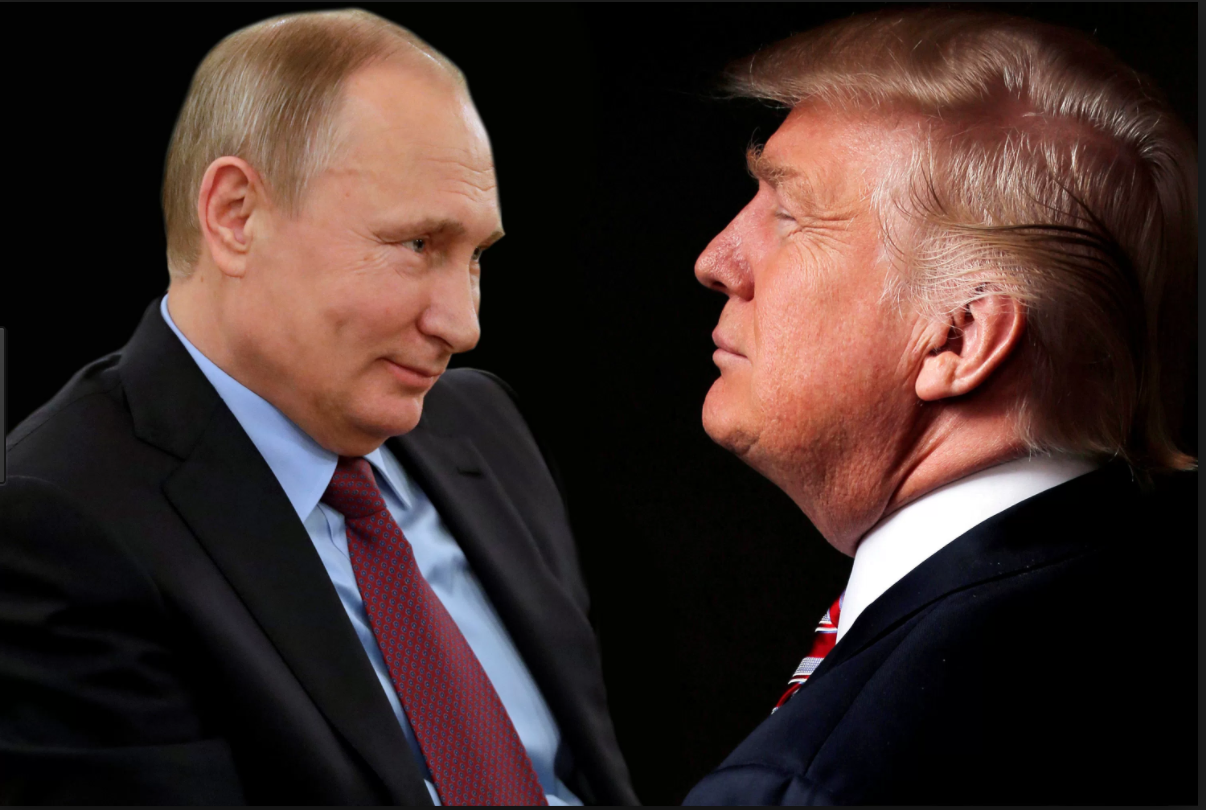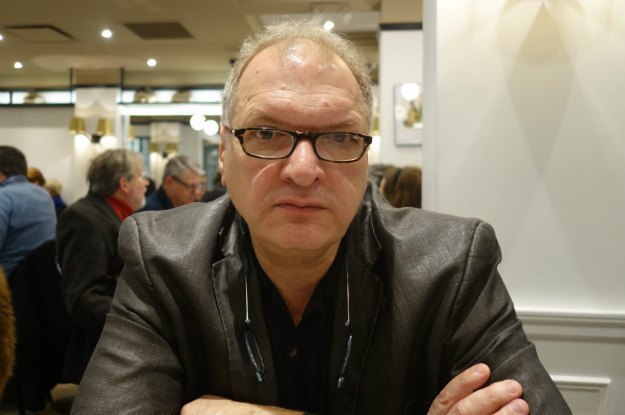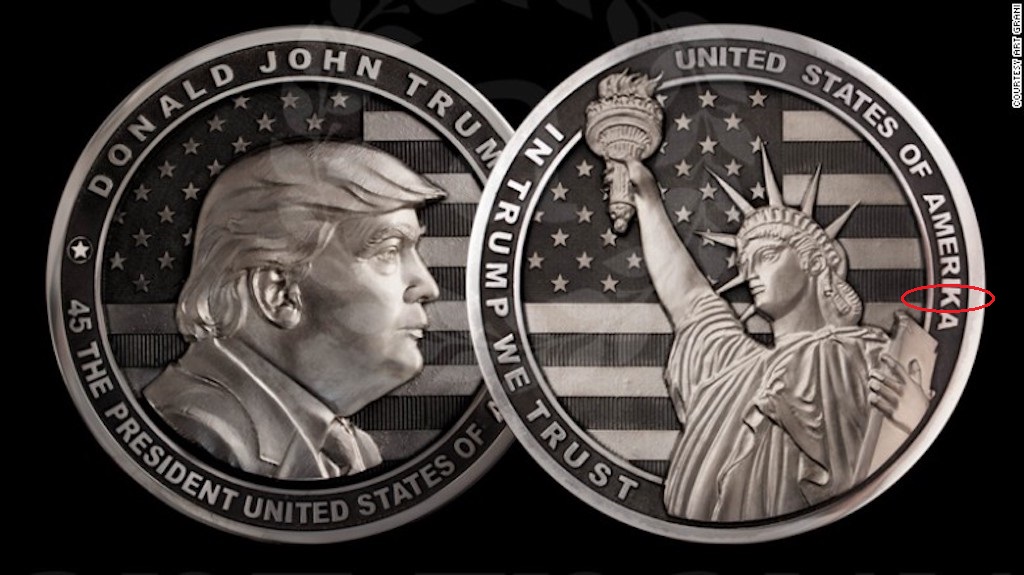Russian experts and sociologists have noted a sharp increase in both anti-Western sentiment and anti-American rhetoric in Russian establishment politics. In particular, as journalist Denis Ermakov points out, it's the first time such sentiments have been observed since Donald Trump's election to the presidency of the United States.
In his article, the Russian analyst lists several statements by officials and the press that demonstrate the same stylistics of the new "Cold War" that had been observed on a much larger scale at the very beginning of the Russian-Ukrainian conflict in 2013-14.
Last week, one senior Russian official after another began speaking in one voice about the West trying to destabilize the situation in Russia and, specifically, in order to influence the outcome of the presidential election in 2018. At a special Federation Council hearing on June 7, the speaker of the upper house Valentina Matviyenko, the Prosecutor General Yury Chaika, and the head of the Foreign Intelligence Service (SVR) Sergey Naryshkin, talked about this," Ermakov said.
"The Russophobic course the West is on at the present moment is practically institutionalized, and its instigators and promoters occupy leading positions in the government, international organizations, the media and various non-governmental organizations," Sergey Naryshkin told the senators.
At the same time, he said, "the scenario if realized by the West implies depriving Russia of independence in international affairs and obtaining unlimited access to our natural resources."
"The US wants to strengthen sanctions against our energy sector," Naryshkin warned. Earlier in an interview with The Financial Times, the head of Rosneft
Igor Sechin also said that anti-Russian sanctions were introduced to influence the socio-economic situation in Russia, "to make it worse, and to have this affect the elections."
The head of SVR also noted that the US "launched work on the creation of the so-called hybrid war crimes tribunal" of Russia in Syria. He is confident that hostile agents want to destabilize Russia's socio-economic situation and "undermine the authority of power of institutions in the country to eventually plunge Russia into chaos." According to Valentina Matviyenko, "our detractors are now forced to increase their emphasis on external pressures on Russia."
"There is no doubt that during the time that remains before the presidential elections in Russia in March next year, we will face very active and consistent attempts by the United States and its NATO allies to influence the course of this election campaign," said the head of the international committee of the Federation Council, Konstantin Kosachev.
At the same time, some Russian and even Ukrainian political scientists see the strengthening of anti-American rhetoric as a sign that Putin "has failed to make a deal with Trump," or as evidence that the latter is not fulfilling the conditions of a possible previously concluded deal. However, if we take into account what is happening in Russia and in the US itself, we can conclude that such conclusions are premature.
First, as both Denis Ermakov and Levada Center head Lev Gudkov rightly conclude, anti-Western rhetoric is being used by Russian authorities primarily for "internal consumption.”
"The Kremlin is reviving a negative narrative in order to suppress once and for all its political opponents, to mobilize a loyal electorate, and at the same time to try once again to break through its international isolation on the 'Western front,'" the author notes.
Secondly, for all its aggressiveness, Russia’s new anti-American rhetoric differs from the old, “pre-election" propaganda. In particular, whereas prior to the election, Russian officials and the media preferred to cast blame for all Russia's sins not only on a faceless US, but to personally blame Barack Obama and/or Hillary Clinton. Post-election propaganda, with the exception of some of its most odious proponents, does not dare to personally blame Donald Trump for Russia's troubles. Instead, both Russian "journalists" and officials, including those at the highest levels, prefer to talk about some faceless “West,” a kind of semi-mythical, but surprisingly unified monster. They speak of the United States in the same tone they speak about a single “global government conspiracy" creating intrigues for Russia, regardless of the actual positions stated by Trump personally.
What's rather paradoxical is that instead of all this anti-American propaganda rhetoric leading to conflict with the sitting American president, it seems aimed to appeal to him.
Putin seems to go out of his way to make clear that he has no quarrel with Trump, but with the American system, which is like some sort of "collective consciousness,” not propagated by propaganda, but by a powerfully effective mechanism of checks, balances, values, institutions, and most importantly, the the rule of law. The problem, however, is that Trump himself, from his first days in office, has been battling the same thing as Putin, only he calls it by another term - the "Deep State.” In fact, what the pro-Trump propagandists designate under the term “Deep State” is essentially the American system of institutions and norms.
In fact, if we put aside the many expressions of the Trump administration's desire for relations with Russia, and pay attention only to the facts, we are reminded that even before assuming office, Trump engaged in daily denials of the fact of Russia’s interference in the American election (no longer in doubt), he denigrated the American intelligence community, and he openly defended Putin against the interests of his own country. And since that time, as historian Yuri Felshtinsky
rightly notes, Trump has failed to utter a single bad word about Putin.
Moreover, on May 9, Trump fired the director of the FBI, James Comey, an unprecedented event which was immediately followed by Trump meeting in the Oval Office the head of the Russian Foreign Ministry Sergey Lavrov, to whom he promptly told that he fired Comey because of the "great pressure" of the Russia investigation, which he now “removed.” And Trump boastfully reported to the Russians that he was not under investigation. At that same meeting, Trump also revealed top secret classified information to Lavrov, as reported in many American media outlets.
Then, at a recent hearing in the US Senate, James Comey confirmed that Trump tried to intervene in the investigation, demanded loyalty to himself and asked to stop the investigation of his former national security adviser Michael Flynn. The fact that Republicans have refused to respond to any of these unprecedented events has already been identified in the press as putting the interests of party over the interests of country.
Nearly all the members of Trump's team, including his personal lawyers and family members, have some connection to Russia: either in terms of serving the interests of certain Russian entities, or in matters of business, including some very suspicious negotiations.
Some of them are even suspected of laundering money
for the Russian mafia. By the way, Trump’s nominee for the post of new head of the FBI, Christopher Wray, also has links to Russia. His law firm is known to have represented the interests of Russian state energy giants Rosneft and Gazprom.
In terms of foreign policy, Trump has soured relations with key US allies, primarily Germany, France and Britain – in other words, doing exactly what Putin wants from him. It seems that the Kremlin already understands that the main problem for the ambitions of the Russian dictator is not Trump, but the American system, or rather, those parts that try to resist the policies of the new administration in the White House.
At the same time, the Kremlin paints its propaganda picture of the hostile West and the "sinister US," as if specifically avoiding the specific filling in of these terms, leaving its "overseas partners" room for imagination, which they did not fail to take advantage of.
So, right after the hearings in the Senate, local Trump fans started spreading unsubstantiated and slanderous rumors of "Comey’s brothers working for the Clinton Foundation" and other absurd conspiracy theories.
By the way, the constant exploitation of conspiracy myths with the use of images of Obama and Clinton, as well as accusing all the people who testify against Trump in connection with them, also fully conforms to Russian propaganda. Regardless of mistakes or even conscious transgressions the Democrats may have made during their time in power, neither Obama nor Clinton has ever exerted any political pressure on American institutions, much less on the work of US counterintelligence community.
This strategy of creating a virtual enemy in order to divert attention from real problems and crimes of those in power and from a specific investigation, as well as switching the agenda from the relevant present to the irrelevant past, is also a technique completely borrowed from Russian propaganda – the only difference being that in Russia the role of the enemy is the "evil West," and in America - it's the "invisible, but all-powerful Obama."
Thus, Russia's dictator, with his growing anti-American rhetoric, and America's current president, are in fact battling one and the same enemy – the "collective West" whose democratic principles, independent press and the American system of justice are being severely tested. It's too early to say who will win this battle. Watch this space.
Related:
- It’s possible that Trump has Russian money – Russian commentator
- ‘Russian Trumpism’ includes two different, even contradictory, strains, Smagin says
- ‘Trump is again OURS,’ Moscow commentators say
- Conflict with North Korea may be Trump’s red herring, the author of “Blowing Up Russia” says
- Trump’s Russian connections and the “Cold War” inside the USA
- Putin, like Trump, being pressed to take harder line abroad to shore up his own position, Piontkovsky says
- The nuclear fallout of Trump’s possible détente with Putin
- End of Kremlin’s dream of ‘Big Deal’ with Trump makes Putin more dangerous not less





